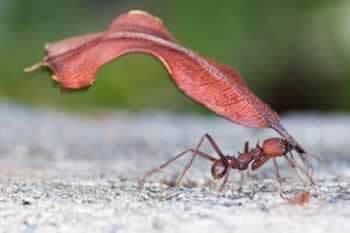By observinga crocodile and an alligator, we are often confused and even think that these reptiles are the same. However, there are very marked differences between them. For starters, these two animals don't even belong to the same family. Alligators belong to the Alligatoridae family, while the crocodile belongs to the Crocodilidae.
Among the physical characteristics, we can mention the snout, which in crocodiles is thinner and elongated when compared to alligators, which have a shorter and wider snout.
To differentiate these reptiles, we can also look at the mandible. In crocodiles, it is possible to observe that the fourth tooth of the lower jaw (one tooth larger than the others) is visible even when the animal has its mouth closed. In alligators, this does not happen. Also in relation to the teeth, we can see that in crocodiles, they appear aligned, differently from alligators.

Note the shape of the snout of this crocodile attacking a wildebeest
There are also glandular pores in the ventral scales of crocodiles, structures that are not found in alligators. The function of these pores is not well understood, however, it is believed that there may be a relationship between them and the exchange of heat and water with the environment.
Six alligator species are found in Brazilian territory, but no crocodile is found. Among the Brazilian species, we can mention the alligator-pap-yellow and the alligator-açu.
The alligator-de-papo-amarelo is a typical species of South America, and can be found in Brazil, Argentina, Uruguay, Bolivia and Paraguay. This reptile reaches an average of 2 meters in length and is located mainly in mangroves, swamps and wetlands, where they feed on fish, birds and mammals. These animals can live up to 50 years.
The alligator-açu is a species distributed throughout the Amazon Basin, being found in Brazil, Bolivia, Colombia, Ecuador, Peru, English Guiana and French Guiana. This reptile reaches the remarkable mark of 6 meters in length. Their diet is based on fish, birds and crabs. They live an average of 80 years.
by Vanessa dos Santos
Graduated in Biology



